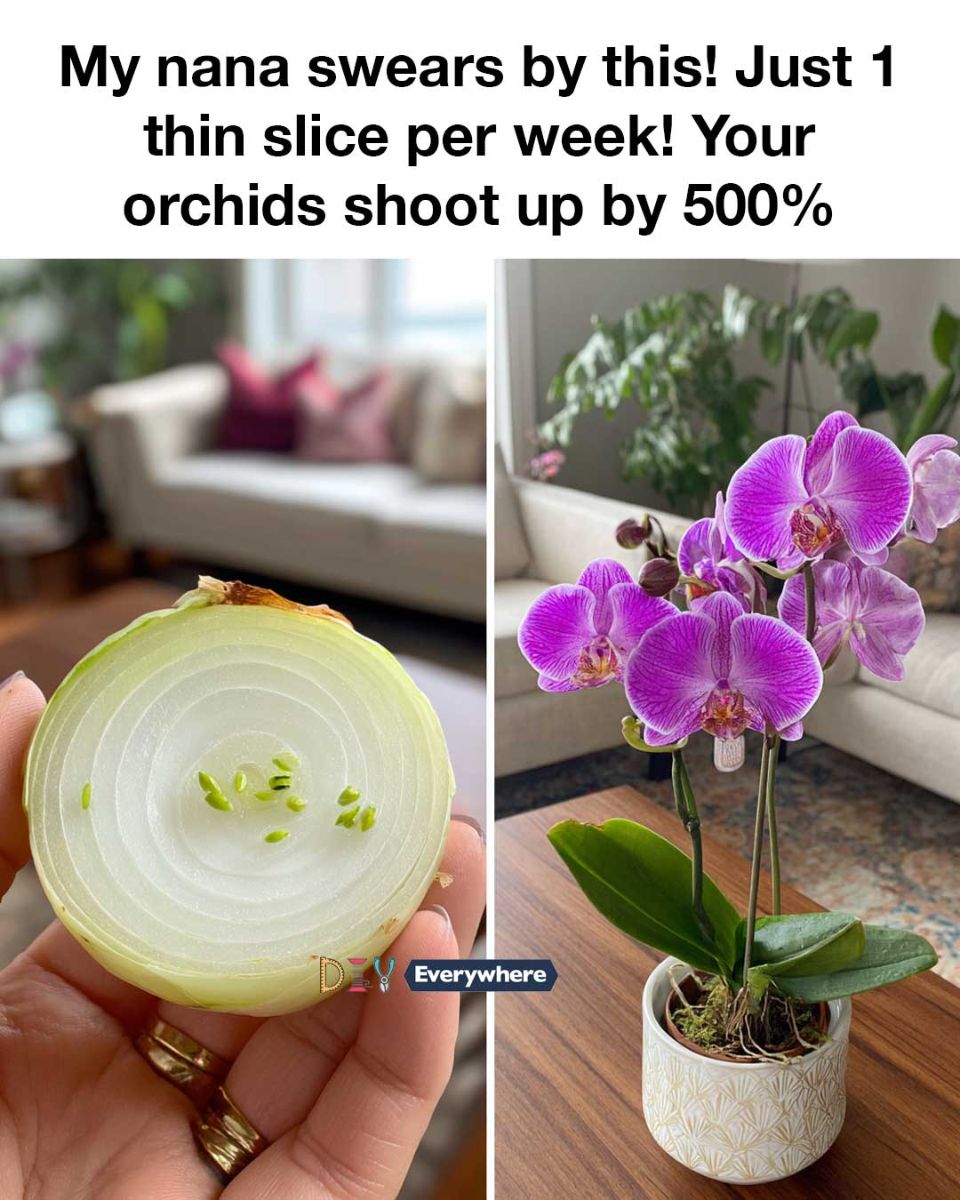8. The Environmental Impact of Using Onions
Using onions as a natural growth enhancer for orchids is an environmentally friendly practice. Onions are biodegradable and decompose naturally, enriching the soil without leaving harmful residues. This contrasts with synthetic fertilizers, which can contribute to soil and water pollution.
Moreover, onions are a renewable resource, readily available and inexpensive, making them a sustainable choice for eco-conscious gardeners. By reducing reliance on chemical fertilizers, the onion slice method promotes a healthier ecosystem and supports biodiversity.
9. Expert Opinions on the Onion Method
Horticulturists and plant scientists have expressed interest in the potential benefits of using onions in plant care. Dr. Emily Green, a botanist specializing in orchid biology, notes that the sulfur content in onions can indeed enhance nutrient uptake and improve plant health. She emphasizes the importance of using natural methods to support plant growth, as they often work in harmony with the plant’s natural processes.
While more research is needed to fully understand the mechanisms at play, the anecdotal evidence and preliminary studies suggest that the onion slice method is a promising avenue for orchid care.
10. Frequently Asked Questions
Q: Can I use any type of onion for this method?
A: Yes, any variety of onion can be used, including red, white, and yellow onions. Each type contains beneficial compounds that can aid in orchid growth.
Q: How long does it take to see results?
A: While results can vary depending on the orchid species and growing conditions, many gardeners report noticeable improvements within 4 to 6 weeks.
Q: Is this method safe for all types of orchids?
A: Generally, the onion slice method is safe for most orchid species. However, it’s always a good idea to monitor your plants for any adverse reactions and adjust the method as needed.
11. Future Trends in Orchid Care
As more gardeners seek sustainable and natural methods for plant care, the use of kitchen ingredients like onions is likely to gain popularity. Future trends may include further exploration of other common household items that can benefit orchids and other plants.
Advancements in plant science may also lead to a deeper understanding of the specific compounds in onions that contribute to plant health, paving the way for more targeted and effective natural fertilizers. As we continue to learn from traditional practices and blend them with modern science, the future of orchid care looks promising and innovative.
ADVERTISEMENT

